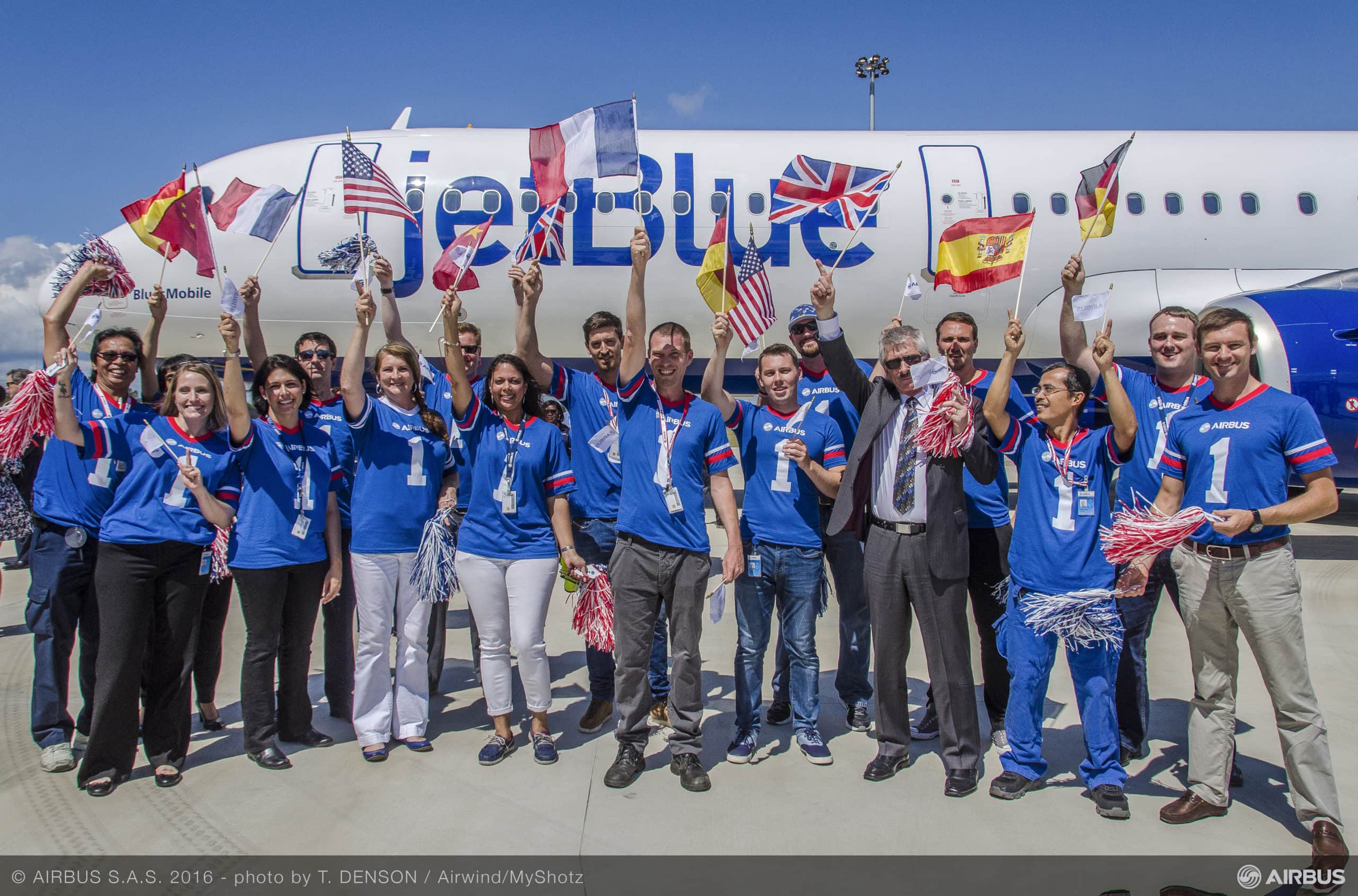JetBlue’s All-American Airbus A320 and LATAM’s New Livery: APEX Daily Experience Week in Review
Share

Here are the most-read stories from this week’s APEX Daily Experience newsletters. To receive breaking passenger experience industry news in your inbox on a daily basis, subscribe here.
Rising Demand (and Profits): IFEC Market to Transform Into $5.4 Billion Industry by 2025
GET CONNECTED | APRIL 25, 2016
A recent in-depth report assessing the prospects of the in-flight entertainment and connectivity market (IFEC) over the next nine years is forecasting growth of 23 percent per year until the mid 2020s. After interviewing more than 15 global stakeholders, research firm Reports and Markets estimates IFEC industry revenues to grow from $700 million in 2015 to nearly $5.4 billion in 2025. According to the report report, increasing numbers of connected aircraft, which will grow from 5,300 to 23,100 over the said period, and the launch of high-throughput satellites will be the main drivers of growth.
Style Makeover: LATAM Unveils a Unified Livery
AIRWAYS NEWS | APRIL 29, 2016
LATAM Airlines today unveiled its new livery following last year’s merger between Chile’s LAN and Brazil’s TAM airlines. The look is a major step towards consolidating the market strategy and passenger experience of each carrier under a single brand. The airline also announced that redesigned crew and staff uniforms, airport signaling and an integrated website will begin rolling out in May. The first aircraft to debut the new livery is a Boeing 767-300ER, which will take to the skies on May 1, in a one-off flight from Rio de Janeiro to Geneva to collect the Olympic torch ahead of the 2016 summer games.
Born in the USA: Airbus Delivers Its First “Made in America” Aircraft to JetBlue
REUTERS | APRIL 26, 2016
Airbus delivered its first US-built aircraft from its assembly plant in Mobile, Alabama. JetBlue received the A321 less than eight months after the inauguration of the $600 million Airbus factory in September 2015. “Going from breaking ground on this facility three years ago to handing over the first Alabama-produced A321 today is an amazing accomplishment,” says Airbus sales chief John Leahy. Airbus says it expects the plant to deliver four aircraft per month by the end of 2017.
Flydubai Connects With GEE for Fully Integrated Ku-Band IFEC System
ALBAWABA | APRIL 26, 2016
Flydubai has officially launched its new integrated in-flight entertainment and connectivity system in partnership with Global Eagle Entertainment (GEE). As of this week, the Dubai-based low-cost carrier began rolling out of GEE’s Ku-band satellites and Airconnect system across its entire fleet, allowing passengers to take advantage of in-flight Wi-Fi and live television, which is available either through an upgraded seatback touch display interface or via personal device streaming. “This launch marks a major milestone in delivering high-speed satellite connectivity aboard our flights and brings technical capabilities that will continue to differentiate the airline from its peers,” says Ghaith Al Ghaith, CEO of flydubai.
Bombardier Secures Gigantic Delta Air Lines Order for Up to 125 CS100 Jets
BLOOMBERG | APRIL 28, 2016
Delta Air Lines today confirmed an order with Bombardier for 75 CS100 aircraft with options for an additional 50, making the carrier the US launch customer for the C Series program. The deal, worth $5.6 billion at list prices, is a major boost for Bombardier, helping it exceed a target of 300 firm commitments by the time the upcoming narrow-body jet enters service. “It’s a turning point for the program,” says Alain Bellemare, CEO of the Montreal-based aircraft manufacturer. “It gives us very strong momentum and will fill up the skyline for the next few years.” Bombardier says deliveries to Delta will begin in 2018.
Delta to Roll Out RFID Tags and Smartphone Baggage Tracking
ATLANTA JOURNAL CONSTITUTION | APRIL 28, 2016
Delta Air Lines will soon begin using baggage tags with Radio Frequency Identification (RFID) tracking technology. Beginning in the fourth quarter of 2016, the new system will replace barcode hand scanning for the 120 million items of checked baggage it handles each year. RFID technology will enable passengers to monitor their luggage using real-time tracking and receive push notifications via the Fly Delta mobile app. “With a $50 million investment in RFID at 344 stations around the globe, we aim to reliably deliver every bag on every flight,” says Bill Lentsch, Delta’s SVP of Airport Customer Service and Cargo Operations.



